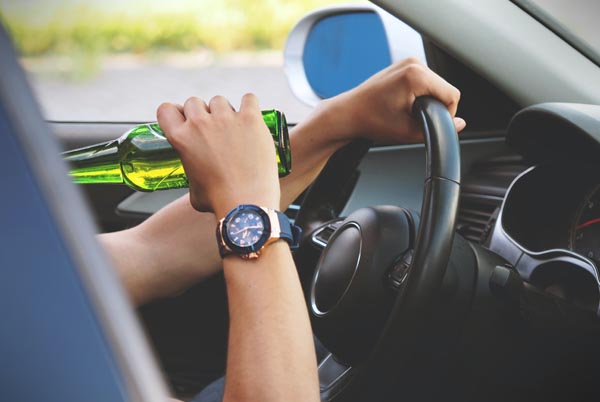Driving can be a pleasure, we all know that. Similarly driving can be a chore or, worse, a big mistake. Examples of big mistakes can be seen every day in the courts where drivers are charged with committing driving offences.
One of the most serious of these is drink driving; however, it’s not always that straightforward as the numbers of drivers found not guilty of the charge shows.
The law states that it is an offence to drive or attempt to drive a motor vehicle on a road or public place if the proportion of alcohol in breath, blood or urine exceeds the prescribed limit.
The legal limits for Drink Driving are:
- 35 microgrammes of alcohol in 100ml of breath
- 80mg of alcohol in 100ml of blood
- 107mg of alcohol in 100ml of urine
So that’s an open and shut case then isn’t it? Not necessarily.
The first point is that the offence only applies on a road or public place. If someone was driving on private land, even after having consumed more alcohol than those prescribed limits, they would not be guilty of the offence of drink driving.
The second main area is that the prosecution will need to prove that at the time of driving you had excess alcohol in your breath, blood or urine. This could be an issue if you drank after driving but before providing a breath test; however, you would need to show that at the time of driving you would have been below the legal limit. This can happen when a driver has a nasty shock and has a drink to calm himself but expert forensic evidence would normally be needed to demonstrate this.
A third area is where errors may have been made in the procedures and standards. For example, any breath test machine must be operated correctly and must comply with Home Office Guidelines on servicing and use; a warning about prosecution must have been given; tests must have taken place within a reasonable time of each other; suitable risk assessment questions should have been asked; an alternative option must be offered if a breath test is within a specified range. There could be other such mistakes that would affect any prosecution.
Duress can be considered if the reason you drove was a direct consequence of either you or another facing an immediate threat of death or serious injury.
Where no defence can be put forward, it may be possible to save your licence if there were ‘Special Reasons’. Examples include spiked or laced drinks, an urgent medical condition or an emergency.
Convictions in Drink Driving usually mean a mandatory driving disqualification for a minimum of 12 months and the greater the alcohol level, the greater the length of the disqualification. In more extreme cases community order or even prison sentences can be given. In addition insurance prices after a drink driving offence are usually significant.
So, number 1, don’t; Number 2, if you or anyone you know is arrested for drink driving or been bailed to attend a police station regarding drink driving, legal advice should be sought immediately from a legal practice specializing in driving offences.

